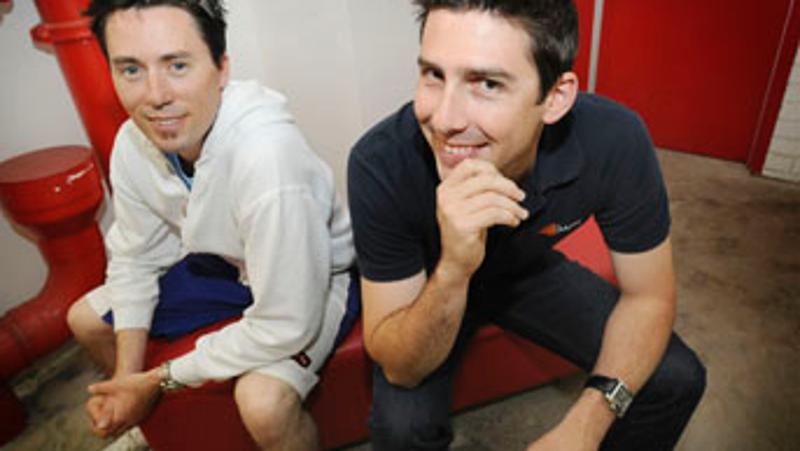
Sixty Botswana orphans now have a new sustainable home and school thanks to the hands-on work of 10 QUT students and staff from the construction and engineering disciplines.
Eight students and two lecturers from the School of Urban Development have returned from three weeks in Botswana after designing and constructing three soil block buildings to house the children who were orphaned by AIDs.
Construction management lecturer Paul den Ronden said the team, which included 16 volunteers recruited by QUT students and their contacts, laid 18,000 soil blocks made on site, fabricated and installed 56 steel trusses and roofed three buildings.
"It was a great success with the three buildings erected in 16 working days. We worked some huge days to achieve this with one herculean effort going till 4.30am," Mr den Ronden said.
"We overcame a few challenges - our container arrived only on day nine due to delays and breakdowns by the transport company which was shipping it from Capetown."
Richard Mills, a third-year Urban Development student, said the project was particularly satisfying because it took a three-pronged approach to sustainability.
"We built a bakery so that the locals could learn a skill and become financially sustainable; it is environmentally sustainable because they can repair or expand by making more soil blocks; and has human sustainability because we trained the local people in simple building techniques with materials that come readily to hand," Mr Mills said.
Situated in southern Africa, Botswana has a population of 1.8 million people, 50 per cent of whom are aged under 17. The country bears the burden of the second highest rate of HIV infection in Africa with more than 240,000 government-registered orphans.
Student Luke Hempenstall said the students had raised about $47,000 through concerts, bingo and trivia nights and about $100,000 in materials and business sponsorship to assist with their ongoing project.
"We only had a couple of photos of the site before we got there so we designed simple buildings and had to simplify construction methods to suit the resources, material and the labour we would have when we arrived there," Mr Hempenstall said.
"We designed the trusses to fit the unique materials that were donated and we had to adapt the tie-down method to suit soil block construction so there was a lot of improvisation."
Mark O'Connell, an Urban Development student , said working with the local people had presented some challenges.
"We had to overcome some language barriers in directing the local labourers but the local women helped out immensely by setting up a camp kitchen and cooking three square meals a day to keep us all going."
Mr Mills and Mr O'Connell are writing a manual for future QUT construction industry students who would work on stage two of the project next year - the goal is to expand the dormitories and classrooms to house 400 children - and Mr Hempenstall is making some documentaries to record their achievement.
They said the experience of building relationships with sponsors in the construction industry that could be sustained for subsequent projects had been invaluable for their future careers.
Mr den Ronden said the project was covered by Botswana's national news when the Minister for Youth Culture and Sport Gladys K.T. Kokorwe opened the centre during the last week of the project.
Media contact: Niki Widdowson, QUT media, 07 3138 1841 or n.widdowson@qut.edu.au.
** High res photo available.


